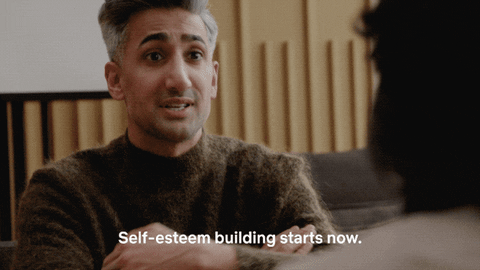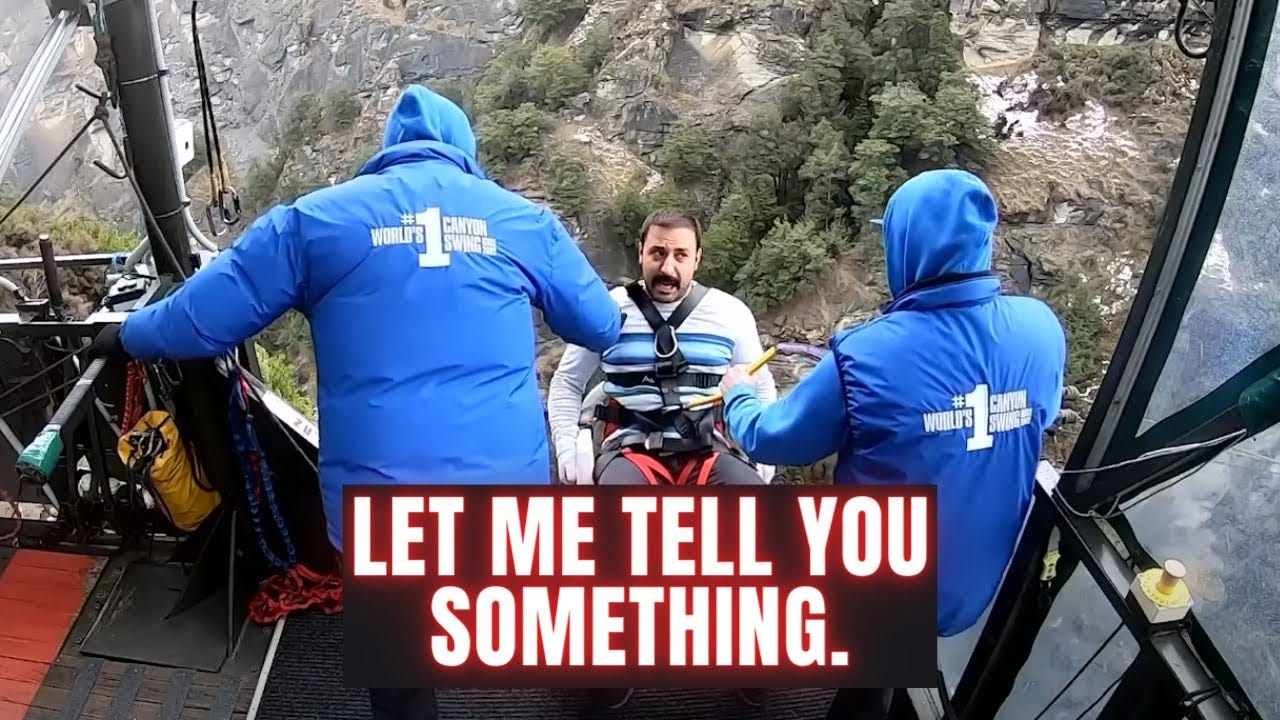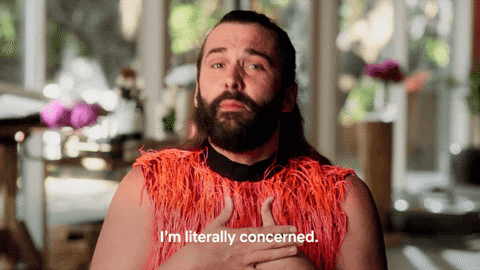How (and Why) to Stop Overwriting Your Fiction Novels
Don't let the details get you down or bore your readers.
All of us have fallen for overwriting’s siren call. 🧜🏼♀️ We’re lured in by punching up our prose, ensuring we’re being clear and thorough in our descriptions, and doing our damnedest for readers to understand what we’re saying.
But what if I told you you’re doing too much?
In today’s Writing Craft Wednesday, we’re talking about…
✍🏼Less is more in fiction
🌳Allow yourself to step back and see the forest again
🧪Spotting overwriting—an editing exercise
✍🏼 Don’t Let Overwriting Be Your Tragic Flaw
This post isn’t to yell and shout that you’re doing fiction writing wrong.
I’m here to tell you that overwriting is one of the most common flaws found in fiction writing. And it can appear in your narrative, dialogue, action, and interiority.
If you take one thing from this post, let it be this:
More often than not, less is more. Plot, character, and world-building can come across as stronger and more effective with fewer words.
What you have to remember when the urge to overwrite, to purple up your prose, to overexplain, to over-tell comes, it’s due to two main things…
You don’t realize that readers have an innate ability to fill in the blanks.
You doubt our writing ability.
Before we begin:
1️⃣It’s okay to overwrite your first draft.
If you find it helpful to word vomit all over the page, then do it, babe. Get it all out now, but be prepared to clean it up later.
2️⃣Don’t get too attached.
Our words are precious to us, but sometimes we get too attached and they feel set in stone.
Let your first draft sit for as long as you can. The distance will allow you to be less attached to what you wrote—you’ll be able to see it with new eyes.
Which will give you the courage to 🔪brutally self-edit.
3️⃣Trust your readers.
Readers are wildly perceptive. And as writers, we tend to underestimate our readers’ ability to fill in the blanks.
Remember: Readers are smarter than you think.
If you spoon-feed them too much, you risk ruining the immersive reading experience. And sometimes, readers will even get pissed off that they’re being treated like idiots.
Now, why does this happen?
Because you’re too close to your story—you can’t see it clearly.
🌳 Step Back & See the Forest Again
Overwriting comes in many forms:
Wordiness
Vagueness
Redundancy
Convolution
Over-the-top or meaningless metaphors
You’re trying to show the reader the veins on each leaf🍂 rather than the whole forest—we lose the big picture. Put simply, it’s overwhelming. Put bluntly, your readers don’t care about each leaf.
And you might find that it’s not even fun to write.
Another reason why we overwrite is because we’re trying to sound like ‘real writers.’ But let me tell you something…
When you try to sound like a ‘real writer’, you lose your voice for something fake and unnatural. The entire point of writing your story is for it to carry your writing style.
If you haven’t found your writing style yet, that’s okay—but that’s a topic for another day.
Finding the Forest Again
Remember what I said earlier about not becoming too attached to your words?
Yeah, don’t get too attached to your words. They’re not set in stone.
We have erasers. We have the backspace key. We can put our writing in a new word document if we need to pull it out of our manuscript.
Be kind to yourself, but be a no-nonsense self-editor in revisions.
Ask yourself:
Where’s the heart of the scene?
What’s the point of the dialogue?
What’s the voice of the character?
What can I simplify?
🧪Editing Exercise: Spot the Overwriting
What would you simplify in the passage below?:
As the sun moved toward the edge of the horizon, bleeding purple and red, Liza raised her crystal champagne flute to her matte red lips and drank deeply. The carbonation buzzed across her tongue. Sighing loudly, she was sad to see the day end. “It’s over already,” she huffed out.
Behind her the sliding door opened, revealing her burly, gorgeous Scottish boyfriend, Graham. He slinked through the opening like an alley cat. She was just thinking he had been inside too long, wondering if he had fallen asleep in the bath. He walked over and joined her by the edge of the infinity pool that overlooked a garden blooming vividly with roses and other summer flowers. The garden, Liza remembered reading in the resort brochure, took inspiration from the gardens of Versailles.
She waited for a long, unending minute, staring at the stratus clouds covering the remaining blinding strip of sun before it blinked out entirely until he draped his arm around her shoulders.
Graham leaned in closer so he could whisper in her ear. “It’s not over yet,” he murmured.
Was that hard to read? Did you struggle to get through that? I didn’t enjoy writing that.
Here’s how I’d strip this back:
As the sun sank below the horizon, Liza took a sip of her champagne and sighed seeing the day end. She could only just make out the green hedges of the resort gardens beyond the infinity pool. “It’s over already.”
Behind her, Graham came out of the bedroom. Finally, she thought. She glimpsed his red hair from the corner of her eye as he sat beside her, dipping his legs into the water.
He draped his arm around her and whispered, “It’s not over yet.”
Now, I’m not an expert line editor (as you all know, developmental editing is my thannnng), but this is 93 words shorter (more on that in a minute) than the original version and it’s more focused.
It cuts redundant language:
As the sun moved toward the edge of the horizon, bleeding purple and red became As the sun sank below the horizon.
It shows Liza’s emotion rather than tells:
She sighed seeing the day end; Finally, she thought (When Graham came out of the bedroom).
It cuts the small in-between language that cluttered the passage:
She was just thinking he had been inside too long, wondering if he had fallen asleep in the bath; he walked over.
It implies the relationship:
Her burly, gorgeous Scottish boyfriend, Graham is telling. Instead, we can show or imply their relationship through action: He draped his arm around her.
It cuts out irrelevant details:
The Versailles garden replica and how Liza learned about them.
The exact type of clouds covering the sun.
It cuts out the simile that adds nothing to the scene or the character and eliminates the unique dialogue tags.
Your turn! How would you cut this scene back?
📝 Side Note: An Overwritten Novel Costs More Money to Edit
Imagine you’re hiring an editor for a moment.
Self-editing and cutting back scenes to get to the heart of them and making sure you keep relevant details only (with some wiggle room, of course) will save you money when hiring an editor.
The average cost of developmental editing is USD 0.03-0.039/word. (I’ll be using $0.035 for this example):
First passage: 187 words = $6.55
Second passage: 85 words = $2.98
Now, no one is handing over those few words to an editor, so let’s make those numbers manuscripts (While it is unrealistic to think anyone can or should cut 100k words out of their manuscript, I wanted to keep the numbers the same):
187,000 word manuscript = $6,545
85,000 word manuscript = $2,975
See what I mean? 💸
Be the brutal self-editor I know you can be,
Kourtney ✌🏼
📚If you need developmental editing this year, please get in touch for a free sample edit.📚Currently booking May, June, and onward.






